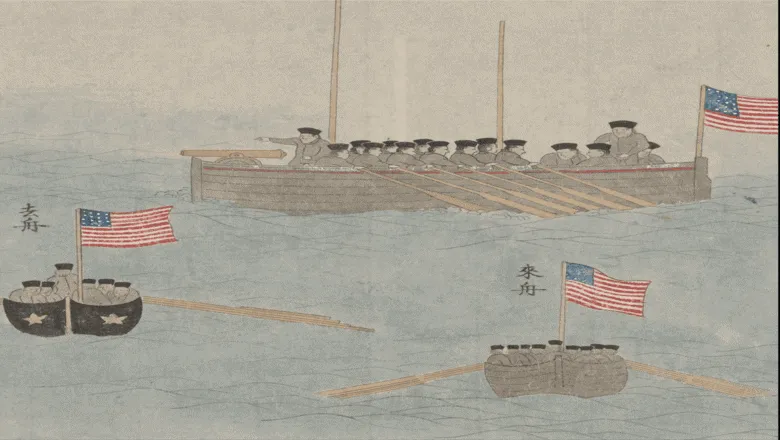
Dr Giuseppe Paparella
Lecturer in East Asian Security
Biography
Dr Giuseppe Paparella is a Lecturer in East Asian Security at the Department of War Studies, King’s College London. Before joining King’s, he held research fellowships at several prestigious institutions and universities, including the University of Oxford (Saïd Business School and Rothermere American Institute), the London School of Economics and Political Science (Department of International History), William & Mary (Global Research Institute), and George Washington University (Institute for Security and Conflict Studies).
Giuseppe is an expert in U.S. foreign policy and East Asian security. His first monograph – Abiding Influence: Presidents, Nationalist Beliefs and U.S. Policy in the Asia Pacific, 1898-1972 – has been published with Stanford University Press, Studies in Asian Security, in November 2025. His research on these and other relevant topics has been published or is forthcoming in the Journal of American-East Asian Relations, US Army War College Press, The International History Review, National Identities, Diplomacy & Statecraft, The Diplomat, H-Diplo/RJISSF, The Strategy Bridge, and others.
Research Interests
- The United States in the Asia Pacific
- U.S.-China Relations
- Applied and Diplomatic History
- Nationalism in International Politics
Teaching
Dr Paparella currently teaches and co-convenes the following modules:
- 5SSW2001 War and Strategy in East Asia
- 6SSW3005 Contemporary Strategy in East Asia
- 7SSWN110 East Asian Security
Dr Paparella is currently unavailable for PhD supervision.
Publications
Book
- Abiding Influence: Presidents, Nationalist Beliefs and U.S. Policy in the Asia Pacific, 1898-1972. Stanford University Press, Studies in Asian Security, 2025.
Book chapter
- “Clash of Empires: Economic Nationalism, Strategic Rivalries, and the Rise of the United States in the Asia-Pacific.” In Kennedy, G., Echevarria, A., & Brinkman-Schwartz, A. (Eds.), The Phenomenon of Economic Warfare: Past, Present and Future, United States Army War College Press (2025).
Research articles
- “Assessing McKinley’s Decision-Making over the Philippines.” Journal of American-East Asian Relations.
- “From (the Infrequency of) War to Vaccine Nationalism: Understanding Nationalism and Foreign Policy in the Decade of New Nationalism.” National Identities, Vol. 25, No. 2 (2023): 155-176.
- “Losing China? Truman’s Nationalist Beliefs and the American Strategic Approach to China, 1948-1949.” International History Review, Vol. 44, No. 6 (2022): 1306-1326.
Media articles
- “What US National (Dis)Unity Means for China Policy,” The Diplomat, October 6, 2023.
- “Back to Diplomacy? The Bumpy Road to Sino-American Détente,” The Diplomat, December 24, 2022.
- “Fear and the Logic of Othering: Decoding the 2022 National Security Strategy,” H-Diplo/RJISSF, November 11, 2022.
- “What Comes After COVID-19? Political Psychology, Strategic Outcomes, and Options for the Asia-Pacific “Quad-Plus,” The Strategy Bridge, July 21, 2020.
Giuseppe welcomes opportunities to pursue interdisciplinary collaborations and to contribute to policy and scholarly initiatives in my areas of research and expertise.
Events

Book Launch: Abiding Influence: Presidents, Nationalist Beliefs, and U.S. Policy in the Asia Pacific, 1898-1972
Dr Giuseppe Paparella’s first monograph, published with Stanford University Press for their Studies in Asian Security series, examines key moments between...
Please note: this event has passed.
Features
What political psychology tells us about the likelihood of war post-pandemic
As tensions rise between the world's super powers over Covid-19 and other issues, countries' perceptions of self and the enemy could indicate what happens...

Events

Book Launch: Abiding Influence: Presidents, Nationalist Beliefs, and U.S. Policy in the Asia Pacific, 1898-1972
Dr Giuseppe Paparella’s first monograph, published with Stanford University Press for their Studies in Asian Security series, examines key moments between...
Please note: this event has passed.
Features
What political psychology tells us about the likelihood of war post-pandemic
As tensions rise between the world's super powers over Covid-19 and other issues, countries' perceptions of self and the enemy could indicate what happens...

